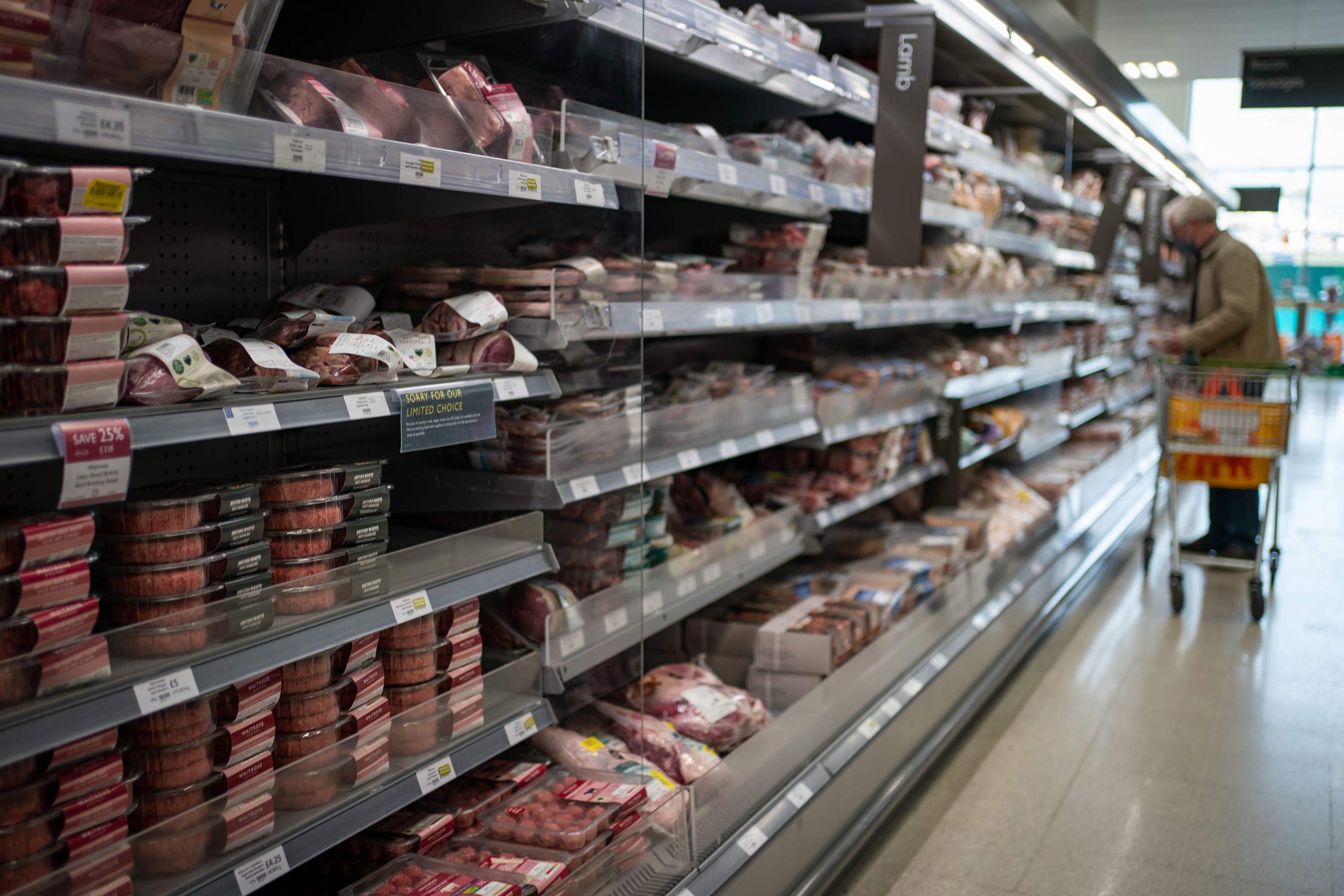
Shop prices have risen to a record high despite overall inflation cooling over the past three months, new figures show – and grocery bills are likely to remain high for months to come.
In a stark reminder that the cost of living crisis is far from over, the British Retail Consortium said shop prices were now 8.4 per cent higher than they were a year ago. This was up from 8 per cent in January and well above the three-month average of 7.8 per cent, according to the BRC-NielsenIQ Shop Price Index.
Analysts at the BRC said soaring prices continued to be driven by high energy bills fuelled by Vladimir Putin’s illegal war in Ukraine.
It comes a day after research firm Kantar said food prices had risen 17.1 per cent. The BRC analysis includes fresh and “ambient” foods such as coffee and tea, as well as non-food goods.
The BRC said food inflation accelerated to a record 14.5 per cent in February, up from 13.8 per cent in January, while fresh food prices were also now a record 16.3 per cent higher than a year ago, up from 15.7 per cent in January.
A weaker pound resulted in imports of fresh food from Europe, especially vegetables, rising in price.
Inflation on products other than food hit a high of 5.3 per cent, up from 5.1 per cent last month and above the three-month average of 4.9 per cent, with gardening tools and pet food particularly affected by cost pressures.
BRC chief executive Helen Dickinson said: “Shop price inflation rose to another record high as retail prices across the board continued to react to the impact of soaring energy bills, higher running costs and tougher trading conditions brought about by the war in Ukraine.

“While we expect to see the annual inflation rate reduce in the second half of this year, retail prices will remain high over the coming months.”
Mike Watkins, head of retail and business insights at NielsenIQ, said: “With more than half of UK consumers (56 per cent) feeling they are in a worse financial position compared to a year ago and inflation still stubbornly high, many households are trimming back on non-essential spending.
“And as volume sales are down on last year, some retailers are having to work even harder to encourage customer spend, including additional price cuts or promotional activity. This is likely to continue until consumer confidence starts to improve.”
The Trussell Trust, which runs a network of more than 1,200 food banks, warned that rising food costs were fuelling a “devastating” situation where huge numbers of people in the UK cannot afford to eat.
“People who are having to turn to our food banks continue to tell us they are skipping meals and can’t afford to heat their homes and cover their bills, and rising food costs are adding to this devastating situation, said Beatrice Orchard, the organisation’s senior policy and public affairs manager.
“We all deserve the dignity of staying warm, fed, and protected from poverty.”
The Trussell Trust and fellow anti-poverty group, the Joseph Rowntree Foundation, unveiled analysis on Monday which found weekly universal credit standard allowance is £35 less than the cost of common essential items for a single person.
They warned that this was contributing to hundreds of thousands of people being forced to use food banks, citing polling suggesting that 90 per cent of universal credit recipients are currently foregoing essentials.
The organisations are urging the government to introduce an “essentials guarantee” to ensure the basic rate of universal credit is enough to cover necessities, an amount estimated to be at least £120 a week for a single person in 2023/24.







